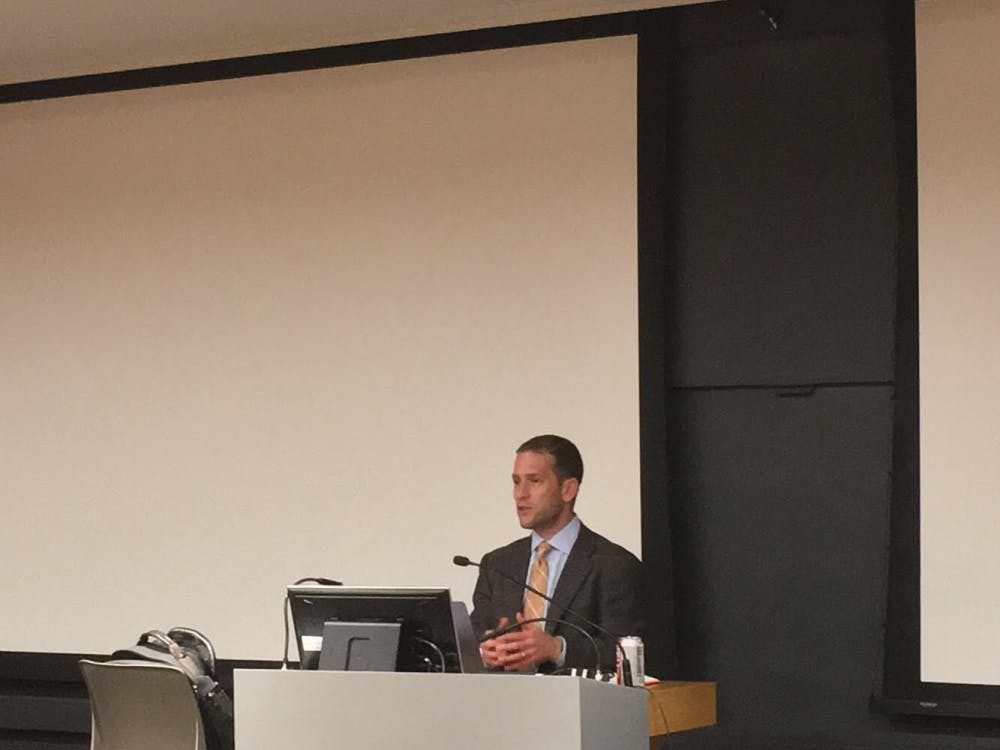On Thursday, Oct. 11, politics professor Jacob Shapiro deconstructed the United States’ defense strategy and how data is used in modern conflict. He spoke about his most recent book, “Small Wars, Big Data: The Information Revolution in Modern Conflict,” which was co-authored by Eli Berman and Joseph H. Felter.
“The upshot is that, look, there is an algorithm to restoring order locally,” he said.
The United States’ goals of reduced violence and increased stability in the Middle East are achievable, Shapiro explained.
Shapiro described the evolution of U.S. defense strategy by presenting two photos of American soldiers. The first featured infantrymen from the 1st Infantry Division landing on Omaha Beach in 1944. The second illustrated infantrymen from the same division but in present-day Middle East.
“The soldiers from the same organization are dramatically different between then and now,” said Shapiro, referring to the stark difference between the kind of enemies and conflicts that the 1st Infantry Division engaged with in World War II and the kind it is facing in the Middle East.
Shapiro went on to describe the U.S. defense strategy against insurgents. He explained that the United States often tries strategies and initiatives that end up having insignificant impacts.
One example is the Local Governance and Community Development project, a stability program that aims to assist the Afghan government in reaching high-risk regions and to help those populations develop stability within their own region. The project hopes that these populations will become less likely to support the close-by insurgents.
“The things we thought would help often did not,” Shapiro added.

Shapiro also emphasized the necessity of understanding the game theoretic model that functions between the regional governments, civilians, and insurgents. Using a slideshow, Shapiro explained the model: civilians receive services from the government and the insurgents in exchange for taxes or extortions, respectively; the insurgents attack the government while the government attempts to suppress them.
During this process, the civilians suffer casualties caused by both the government and the insurgency. Civilians may choose to provide intelligence to the government depending on the risks of the situation. Shapiro explained that it is important for U.S. forces to work with local civilians, particularly to help gather intelligence.
According to Shapiro, U.S. forces are capable of winning conflicts on a regional level with the current strategy. But the main challenge is to win the conflict on a national scale.
According to Shapiro, the biggest obstacle preventing the United States from winning a conflict on a national scale is the people who benefit from the conflict and want it to continue. This results in the fundamental misalignment of incentives surrounding the issue, which makes it difficult for the United States to find success on a national scale in these volatile regions, Shapiro said.

Paige Bentley ’21, who is in the ROTC program and intending to major in Operations Research and Financial Engineering (ORFE), attended the lecture and found it interesting and informative.
The forum was held on Thursday, Oct. 11 at noon in Bowl A71 in the Louis A. Simpson International Building. The forum was sponsored by the Princeton Institute for International and Regional Studies Director’s Book Forum.








